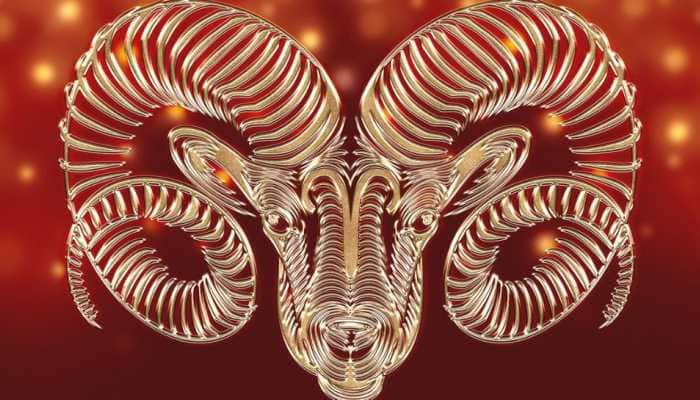Handsome is what handsome does- This is perhaps the most apt way to describe a great artiste, or rather, a true achiever like Shabana Azmi. Hers is not merely a name, it is a symbol of Indian pride. A firm believer in leading by example, she is among those who are as much known for their great deeds as their remarkable talent. As she receives the prestigious International Gandhi Peace Prize at a special function at Britain`s House of Commons on October 26, the whole nation gives her a standing ovation.
Shabana, the first Indian to be receiving such an honour, has been chosen for the award for her tireless efforts for the rehabilitation of Mumbai slum dwellers. British actress Vanessa Redgrave will present the award in the presence of a distinguished gathering including Professor Lord Bhikhu Parekh, Centennial Professor at the London School of Economics, and the Indian High Commissioner Kamalesh Sharma. Serving the society is something that is not new to her. She has been actively involved in working for the poor and the destitute, uplift of women, fight against AIDS and for secularism for the past two decades. She has been voicing her opinion on a variety of issues. Initially, her activism drew skepticism and it was dubbed as a publicity gimmick. However, she proved her critics wrong, and utilised her celebrity status to emerge as a high profile social activist.
Rehabilitation of slum dwellers and refugees
In 1986, Shabana went on a five-day hunger strike for the slum-dwellers of Sanjay Gandhi Nagar along with Anand Patwardhan and three slum-dwellers from Nivaraka Hakk, the group she had been involved with. As a result of her hunger strike, they managed to get three-and-a-half acres of land from the Maharashtra government for the rehabilitation of the slum-dwellers.
She articulated the causes of many neglected social groups including displaced Kashmiri migrants and victims of the earthquake at Latur (Maharashtra, India).
Fight against communalismShabana Azmi has been an ardent supporter of communal harmony. As a part of her efforts in this direction, she participated in several plays and demonstrations denouncing communalism. In 1989, she along with Swami Agnivesh and Asghar Ali Engineer undertook a four-day march for communal harmony from New Delhi to Meerut.
She was so appalled by the 1993 Mumbai riots that she emerged as a forceful critic of religious extremism. After September 11 2001 attacks, she opposed the advice of an important religious leader calling Muslims of India to join the people of Afghanistan in their fight and retorted that the leader should go there alone. Her strong reaction encouraged many other moderate Muslim leaders to counsel, restrain, tolerance, and shun terrorism. She was awarded the Rajiv Gandhi Award (1994) for “Excellence of Secularism”.
AIDS awareness campaign
Shabana has campaigned against ostracisation of victims of AIDS. A small film clipping issued by the Government of India depicts an HIV positive cuddled in her arms saying, “She does not need your rejection, she needs your love”. In a Bengali film named Meghla Aakash she took the role of a physician treating AIDS patients.
Women’s uplift Applauding her incessant efforts in the uplift of women, Shabana Azmi was given the ‘Yash Bhartiya Award (1988)’ by the Government of Uttar Pradesh for highlighting women’s issues in her work as an actress and activist.
She awarded with Padma Shree by the Government of India in 1988. UNFPA appointed her as its goodwill Ambassador for India and the Michigan University conferred (in 2002) on her the Martin Luther King Professorship award in recognition of her contribution to arts, culture and society.
The Finest Indian Actress Shabana Azmi was born on September 18, 1950 in New Delhi. She is the daughter of noted Urdu progressive poet the Late Kaifi Azmi and theatre actress Shaukat Azmi. Art is in her blood. She completed a graduation degree in Psychology from St Xavier’s College, Mumbai, followed by a course in Acting at the Film and Television Institute of India, Pune. She topped the list of successful candidates of 1972. She got married to successful writer, lyricist and poet Jaaved Akhtar in 1984.
She debuted in Shyam Benegal’s Ankur (1972) and won the National Award for her heart-wrentching performance. Through her very first on-screen performance, she hinted to the audience as well as the critics of what was coming.
She received the National Award consecutively for three years from 1983 to 1985 for her roles in the movies, Arth, Khandhar and Paar. Another film named Godmother (1999) brought her another National Award taking her tally to five National Awards. In her career spanning over three decades, Shabana has emerged as the finest actress of Indian cinema. The versatality in her acting is unparalleled. She portrayed various
unforgettable characters and has enjoyed the reputation of getting into the skin of each of them.
She stands out for giving a realist touch to every role she has played so far. Some of her most memorable movies are: Nishant (1975), Junoon (1978), Susman (1986), and Antarnaad (1992); Shatranj Ke Khiladi; Khandhar, Genesis, Ek Din Achanak; Albert Pinto Ko Guussa Kyon Aata Hai; Sparsh, Disha, Paar; Arth, John Schlesinger’s Madame Sousatzka (1988), Roland Joffe’s City of Joy (1992); Vinay Shukla’s Godmother. Her other popular films include Amar Akbar Anthony, Parvarish and Jwalamukhi. Azmi was described by Satyajit Ray as the finest dramatic actress of India.
She has been playing every role of her life with great success- Actress, poetess, writer, social activist and many more. Way to go, Shabana, we are proud of you!







)
)
)
)
)
)
)
)
)
)
